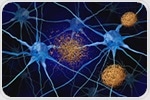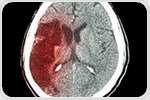
|
|
|
| |

|
|
| |
The latest stem cells news from News Medical |
|
|
|
|
|
 | | |  Intestinal Stem Cells (ISCs) derived from a patient's own cells have garnered significant attention as a new alternative for treating intractable intestinal diseases due to their low risk of rejection. Intestinal Stem Cells (ISCs) derived from a patient's own cells have garnered significant attention as a new alternative for treating intractable intestinal diseases due to their low risk of rejection. | | | | |  A preclinical study uncovered a new gene therapy that targets pain centers in the brain while eliminating the risk of addiction from narcotics treatments, a breakthrough which could provide hope for the more than 50 million Americans living with chronic pain. A preclinical study uncovered a new gene therapy that targets pain centers in the brain while eliminating the risk of addiction from narcotics treatments, a breakthrough which could provide hope for the more than 50 million Americans living with chronic pain. | | | | |  To date, more than 100 clinical trials with human pluripotent stem cell (hPSC)-derived products have been initiated worldwide and an increasing number of potential hPSC-derived clinical products have entered early developmental pipelines. To date, more than 100 clinical trials with human pluripotent stem cell (hPSC)-derived products have been initiated worldwide and an increasing number of potential hPSC-derived clinical products have entered early developmental pipelines. | | | | |  Genetic disorders occur due to alterations in the primary genetic material, deoxyribonucleic acid (DNA), of an organism. Transthyretin amyloidosis (ATTR) is a progressive disorder involving amyloid deposits of misfolded transthyretin (TTR) proteins. Genetic disorders occur due to alterations in the primary genetic material, deoxyribonucleic acid (DNA), of an organism. Transthyretin amyloidosis (ATTR) is a progressive disorder involving amyloid deposits of misfolded transthyretin (TTR) proteins. | | | | |  For the first time, researchers at the University of British Columbia have demonstrated how to reliably produce an important type of human immune cell-known as helper T cells-from stem cells in a controlled laboratory setting. For the first time, researchers at the University of British Columbia have demonstrated how to reliably produce an important type of human immune cell-known as helper T cells-from stem cells in a controlled laboratory setting. | | | | |  Some parts of our bodies bounce back from injury in fairly short order. The outer protective layer of the eye-called the cornea-can heal from minor scratches within a single day. Some parts of our bodies bounce back from injury in fairly short order. The outer protective layer of the eye-called the cornea-can heal from minor scratches within a single day. | |
|
|
|
 | | | How would you rate today's newsletter?
| |
|
|
|
 | | |
 |
Stay updated with the latest in health and medical news! Follow News‑Medical.net on Google News for real‑time updates. Click here to follow us now. |
| |
|
|
|
|
|